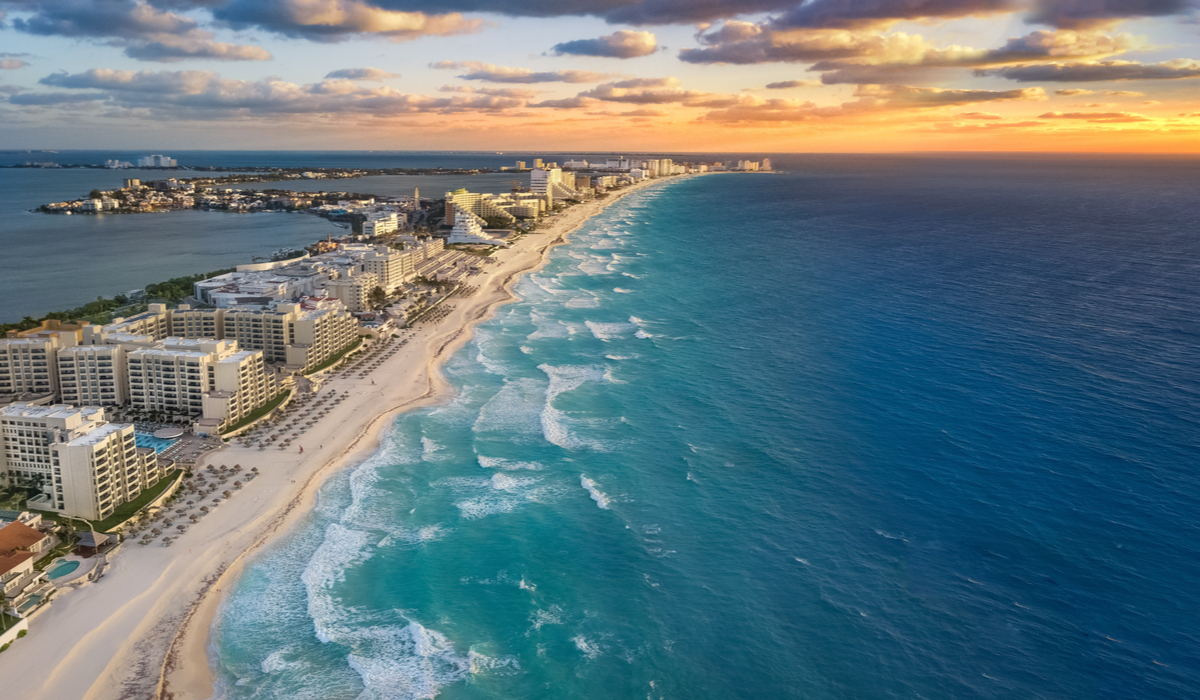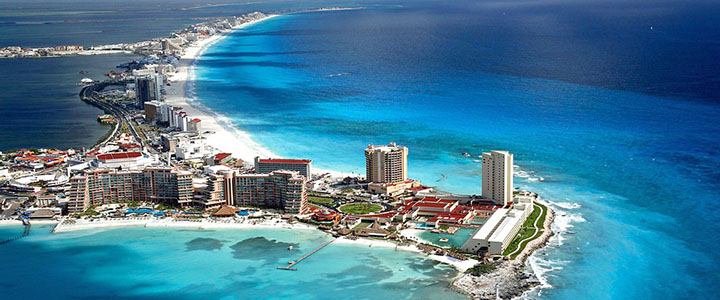

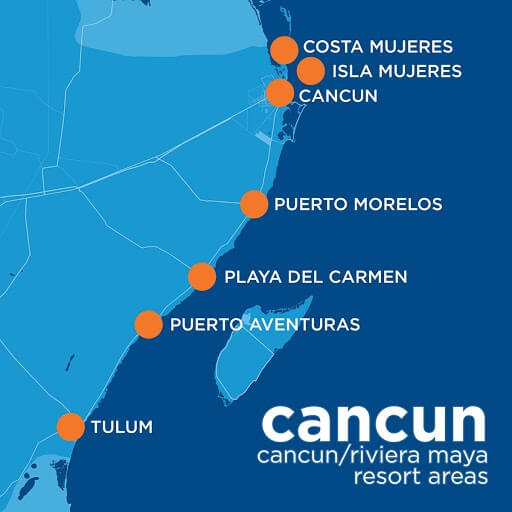
Differences between the riviera Maya and Cancun
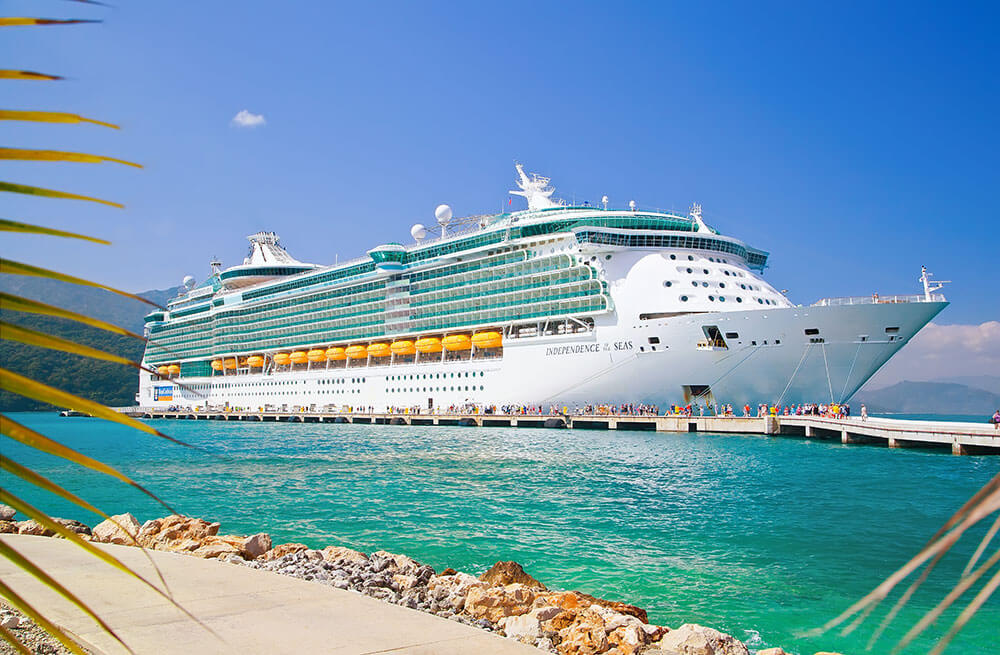
Should I use an agent
Should I use a travel agent or book directly with a cruise line?
One of the most common questions I passionately answer both in person and on online communities (I’m looking at you Reddit), is about how to actually book a cruise. Should you use a travel agent or book directly with a cruise line? I’ll tell you right out the gate that whether you’re looking into your first cruise or well on your way to the highest levels of a cruise line’s loyalty program, I highly recommend using a good travel agent, but let’s talk about why by addressing some common questions and misconceptions.
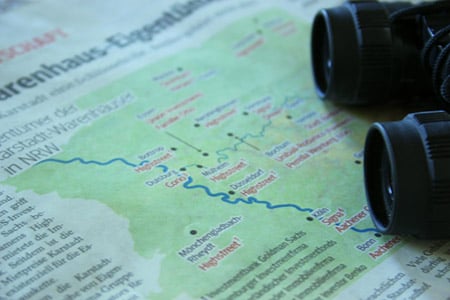
Do people still use travel agents?
More travelers than ever leverage the expertise and help of travel agents for their vacations. Let’s look at some quick facts:
In fact, according to ASTA (the American Society of Travel Agents),
- Last year 22% of leisure travelers from households earning at least $50,000 used a travel agent – up from 14% just three years ago.
- ‘Millennials’ seem the biggest fans of using travel agents, with 30% having used an agent in the last year.
- They seem satisfied: 59% of millennials indicated that their trips planned with agents were better than trips planned without agents. This compares to 53% and 58% for gen x-ers and baby boomers, respectively.
So yes, more people use travel agents each year, and the majority feel their trips were enhanced by using a travel agent.
How is a travel agent paid, doesn’t it cost me money to use an agent?
In short, it rarely costs you money to use a travel agent, and in fact, the agent can very often help you save money on your trip (more on that in that below). When an agent books a hotel room, cruise, tour, etc, this means the provider doesn’t have to sell, market, or service the booking – the agent takes care of all of that. A travel agent may get a commission from the cruise line you’re sailing with.
Many agents don’t charge fees for their services, though some do, and that isn’t necessarily a bad thing. These fees could be for value-added services (such as keeping track of price changes) or for booking airfare, something that agents only do as part of trip with a cruise, hotel stay, etc. Much of the time if an agent does charge fees, they’ll credit them towards your booking once it’s completed. This is because an agent doesn’t want to do your research and planning so you can go book on your own.
What is the advantage of using a travel agent?


Save you money
Beyond the perks offered with your booking, another significant reason to book with a travel agent is the service. A good travel agent has personal experience with travel, but also gets great feedback from his or her clients so they’re continuously learning about different offerings. This means that the agent can help get to know you, find out what you enjoy, what type of vacation you’re looking for, etc, and make recommendations based on the knowledge they’ve amassed. There is no “best cruise line”, but there probably is one that is best for you, and for this trip.
Another great service agents provide is being your primary point of contact for your trip. This can be a big factor, as your cruise may be much more than just a cruise. You might need a car to get you to the airport, a flight to the city you’re cruising from, a hotel in that city, a rental car, restaurant reservations, your cruise, shore excursions, and more. Your agent can not only make these arrangements, but if you need to make changes or get more information, you’ve got one person you can speak with that will help you with everything.
Can’t I get a better deal booking directly with a cruise line?
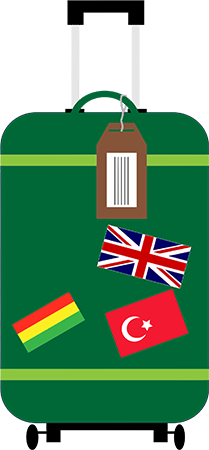
As mentioned, cruise lines require that except for groups, prices are the same across all travel agents, and this applies to the cruise lines’ internal sales teams as well. Cruise lines depend on travel agents to sell cruises and help service those bookings, so they certainly don’t want to undercut the agencies they work with. The cruise line has to market cruises, guide prospective guests through the process, and then be available for any changes or challenges that come about. When a travel agent does this for the cruise line, that’s money that in a way, the cruise line has saved, which get’s back to why cruise lines and other companies pay travel agent’s commission.
Cost vs Value
Getting a deal also means knowing that you’re getting the right cruise for you – a lower price isn’t the only measure of value. While it’s true that 10+ years ago there was far less information out there on cruise line, hotel, and rental car websites – making the role of a travel agent more essential if you didn’t know exactly what you wanted, the amount of information on the internet today can be overwhelming. Yes, cruise lines put their information out there on the web, but like any other business, they control the message – so Princess Cruises may have a ton of information, but they’ll understandably be slanted to make their own line seem to be the most logical choice no matter what your preferences may be.
That’s great, but I like doing the research, and I don’t want to give up control of my booking.
Me too! According to another ASTA study, the biggest reason people say they don’t use a travel agent (aside from the 57% who said they just hadn’t thought of it) is that they want control. While when you book with a travel agent you’ll see certain changes aren’t available to you online or on the phone (such as changing stateroom categories, or adding a person to your reservation, for example), that doesn’t mean you don’t have control. Many of these changes can be a pain to understand, or require waiting on hold for a cruise line to do it. Let your agent wait on hold and figure out these changes.
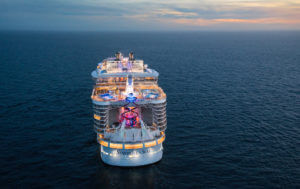
Many other arrangements, such as booking shore excursions and specialty dining can be handled directly with the cruise line if you’d like, but your agent can take care of them for you as well, and most times, is able to help with things that might leave you stuck online, such as finding out your desired dining time is booked–an agent may get you wait-listed, or even work some magic on his or her side. Sometimes, a travel agent can even help you skip to the front of a waiting list for a sold-out sailing or other tour.
In the end, you’re not relinquishing any control, in fact, you’re making it so you have slightly more control, potentially less waiting on hold, and you have a single point of contact for all your travel needs.
They make it easy
When you book a cruise directly you’re entering your contact info, birthday, picking your dining time, bed arrangements, traveling companions’ information, etc. Is it a real pain point? No, it’s not terrible, but now imagine doing the same for your rental car, hotel, cruise, and more – all while triple checking for mistakes. An agent will take care of all of this for you, once again, a single point of contact. Booking multiple trips? A hotel and a cruise? Your agent will note and remember your preferences. For example, my spouse recently found out she is allergic to down pillows. If I’m booking directly I need to remember to note this, but first I have to figure out how to even communicate this information. My agent has ways to annotate bookings, and knows just who to reach out to, so I know that any cruise or hotel stay he arranges for me will result in our walking into our room on day one with foam pillows instead of down.
Because this relationship has been established, when I book a trip, I usually do so in a two sentence email to my agent. He has my information, knows my preferences, how I like to pay for things, etc. In the end, I get a nice summary of my trip with all the pertinent information. Done.
If you really enjoy clicking through and booking on your own, many cruise lines let you do this and then transfer your booking to an agent as long as you make the request within the first 30 days. This means you setup the initial booking but your agent can still maintain it.
Want to have more control but with less work? Use a travel agent.
Should I use a travel agent to book a cruise?
We just spent some time answering this, but the genuine answer is that you should use a travel agent for booking much more than just cruises! We mentioned that if you have pre or post cruise plans, an agent can help with your hotel, car, and other reservations – but it turns out some people take trips that aren’t cruises! Who knew? Keep this in mind, as whether it’s business travel or a land vacation, it really can be a relief. Personally, we’ve booked hotels and other arrangements for entire department meetings using our cruise travel agent, and looked like the hero when we just said, “don’t worry everyone, I’ll handle it all.”
Okay, you’ve convinced me, but how do I find an excellent agent?
At the beginning of this post, I emphasized the importance of using a good travel agent. This means finding someone you click with, and someone that isn’t just a call-center worker for a travel company, but a person that will remember your preferences, providing a real value. In this way, it’s somewhat personal – we all communicate and work differently, so I’d recommend asking a trusted friend, or perhaps a frequent traveler. Don’t be afraid to speak with an agent about what value they provide – just like any other service, a simple “why should I choose you over others” may be quite revealing. If you speak with an agent about a cruise, and they ask you just a question or two about your trip before making a recommendation, speak with another agent. A good agent will want to understand your likes and dislikes, what you do for fun, what type of restaurants you go to, what you’ve liked or disliked about past vacations, etc. The more an agent knows about you, the better recommendation they can make to ensure you pick the right trip for you.
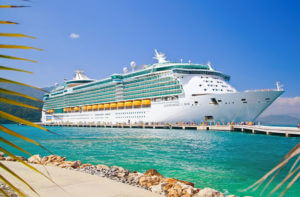
To get agent recommendations, you can ask cruise lines or others for agencies they work with, or just do a search and read about different agencies online to see how they resonate with you. You may already belong to some groups that have travel agencies, such as certain credit card companies, social groups, professional organizations,.
Ultimately, once you find a wonderful agent, it makes your traveling easier, more rewarding, and more affordable. This means you can take more cruises if you use a travel agent. Well, that was my takeaway at least.

Destination Weddings FAQ
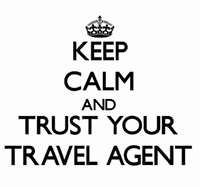
Wedding planning tips
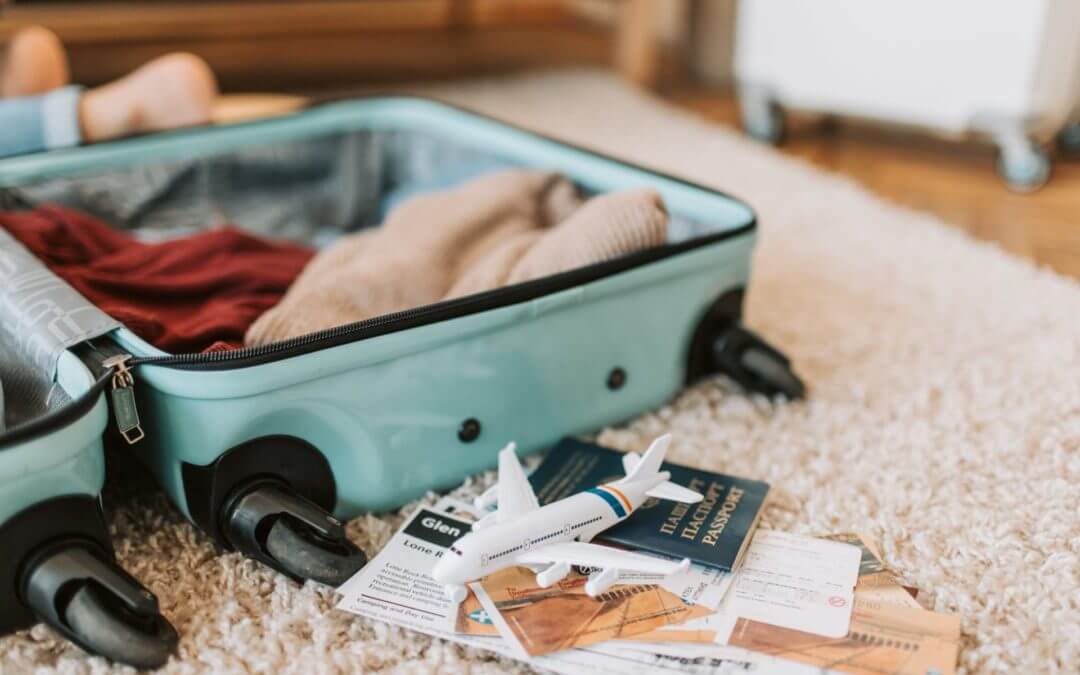
Caribbean Packing list
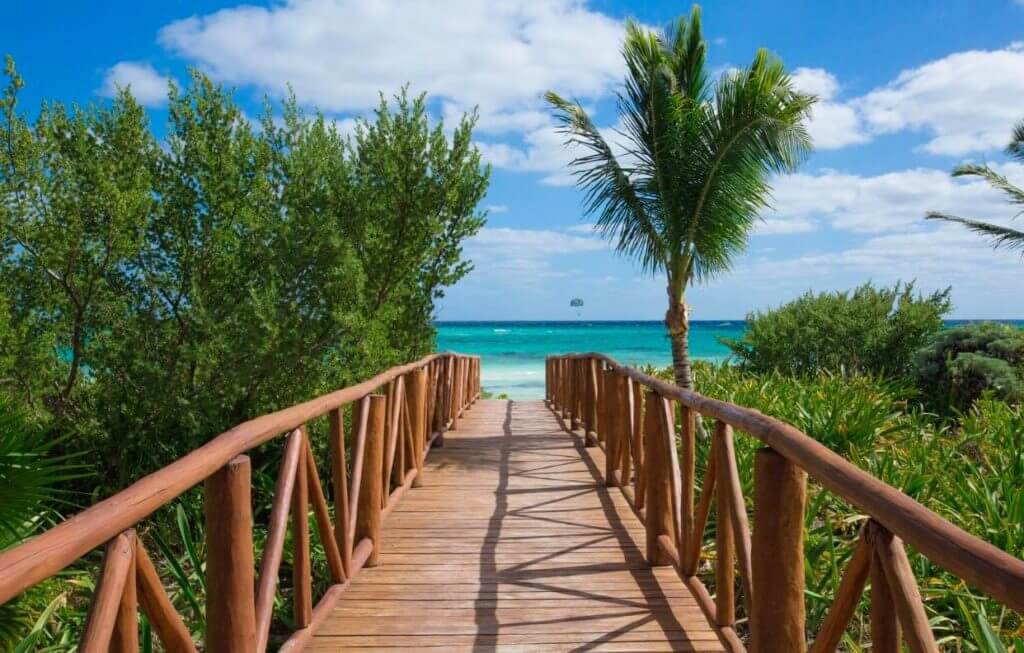
THINGS TO DO
| Get tickets Print travel vouchers Confirm flight Book taxi to airport Exchange money Get passport/Identification Leave directions for house sitter Get extra house key made Take pictures of children | Lock doors Water plants Check fridge Pay bills Do laundry Clean house Buy extra pet food Contact pet kennel |
EQUIPMENT – PACKING
| Backpack Backpack Rain Cover Knap Sack Expandable Carry-On Suitcase Dufflebag/Stuff Sack Rubber-Bands Plastic Bags | Small Box Flexible Steel Cable Chain Padlock Mini Locks Toilet Bag Laundry Bag Shoe Bag Backpack Spare Parts |
TRAVEL GEAR
| Compass GPS Portable Clock First Aid Kit Swiss Army Knife Sowing Kit Flashlight Batteries Candles Lighters Pens Paper Rain Coat/Poncho Translator/Dictionary Camera Underwater Camera Film Sunglasses & Case | Smoke Detector Hat Sandals Binoculars Playing Cards Scrabble Sink Plug Laundry Brush Extra Shoe Laces Eye Glasses Extra Eye Glasses Eye Glass Case Straps for Glasses Safety Pins Sewing Kit Nylon Cord Duct Tape |
T-BAG [Toiletries]
| Insect Repellant Sun Block Lip Balm Alowavera Shaving Equipment Mirror Toothbrush Toothpaste Soap Liquid Soap Soap Dish Shampoo Conditioner Tissue Paper Towel Hair Bands Contact Lenses Extra Contact Lens | Lens Cleaning Solution Tampons Comb Hair Brush Washcloth Handkerchief Detergent Deodorant Dental Floss Fingernail Clippers Moisturizer Q-Tips Tweezers Condoms Baby Powder Clothes Pegs Scissors |
FIRST AID KIT
| Plasters [Band-Aids] Sore Tape Iodine Ear Drops Pills and Tablets Water Purifying Tablets Vitamin Pills Motion Sickness Tablets Fever Tablets | Aspirin Pain Relievers Allergy Pills Malaria Tablets Inhaler Anti-Acid Tablets Gauze Tensor Bandage |
EATING / FOOD EQUIPMENT
| Folding Knife Bottle Opener Can Opener Corkscrew Ketchup/Salts/Peppers Water Bottle Portable Cooler | Thermos Tea Spoon Plastic Drinking Cup Plate Plastic Fork/Spoon Dish Detergent |
SLEEPING THINGS
| Sleeping Mask Inflatable Neck Supporter Earplugs Sleeping Bag Hammock | Sheets Pillow Pillowcase Mosquito Net |
MISCELANEOUS
| Golf Clubs Golf Shoes MP3 Player CD Player CDs Tape Player Tapes Laptop Floppy Disks Modem Electrical Adapter Video Camera Video Tapes | Airplane Blanket Headphone Airplane Slippers Books Magazines Cigar Lighter Guillotine Pipe Beach Games Fishing Equipment Shoe Polish Shoe Brush Hand Fan |

25 questions to ask

25 important questions to ask a travel agent
- Are they available to help you plan?
- How long have they been in business?
- Do they have a business license?
- How do they get paid? Is there a fee to you, and if so, what is it?
- Do they specialize in honeymoon planning?
- How many honeymoons have they planned?
- Are they familiar with the best places to travel the time of year you would like?
- What services does the travel agent offer?
- If they provide full-service planning, what do they need from you?
- Can they help you stay within budget?
- Do they get discounts at certain resorts?
- Have they traveled to any of the resorts they recommend?
- What is their favorite place to visit?
- Do they have photographs or websites for the resorts they have booked in the past and recommend?
- Do any resorts provide special perks for honeymooners (champagne, chocolates, etc.)?
- Can they recommend activities to do while on your honeymoon?
- Do they coordinate transportation?
- How can you reach them while on your trip in case of emergency?
- Do they offer trip insurance?
- What types of documentation is necessary for your trip (domestic and international)?
- Can they provide references?
- What is the total cost and what is required for a deposit?
- Do they offer payment plans?
- What type of payment can they take – cash, check, credit card?
- What it their refund or travel change policy (including if the wedding is called off)?
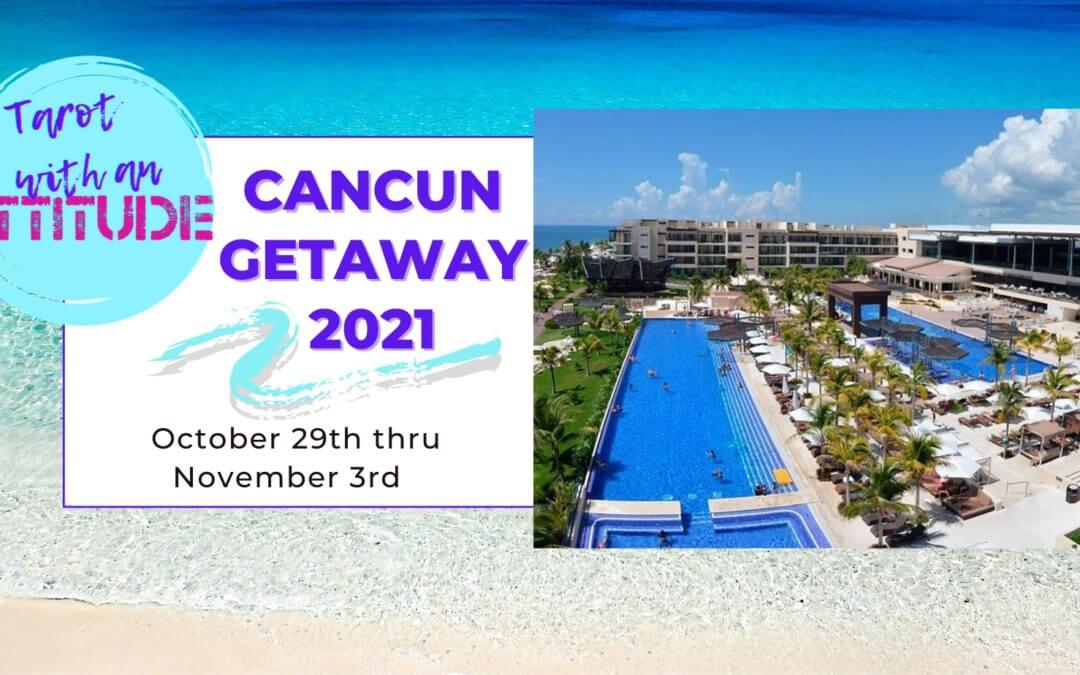
Cancun TWAA 2021
Click here to register
Information and registration about Tarot with an Attitude’s trip to Cancun October of 2021
Click here to register
This is an amazing resort this negotiated price.
All-In Luxury® continues with reservation-free gourmet cuisine at 9 restaurants and at 12 bars where you’ll enjoy a wide selection of specialty cocktails, international and local brand liquors, beers and house wines.
There is a Facebook group with more info here
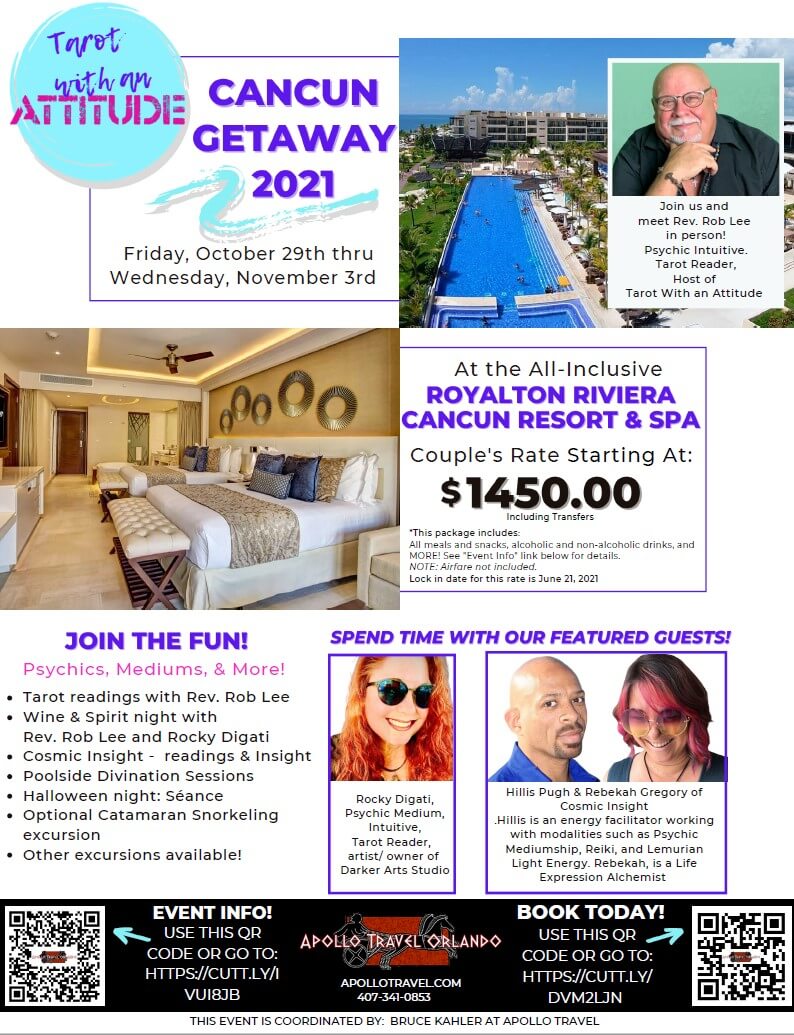
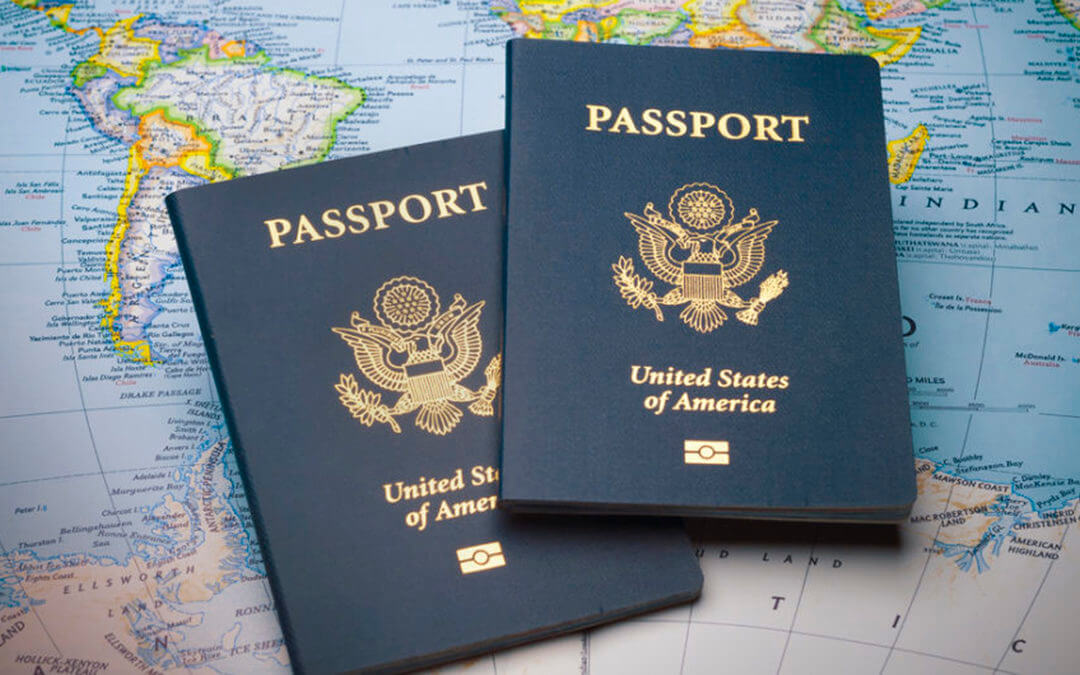
Travel Safe – Tips
Travel Safe – Tips

- Get a Checkup and the Vaccines: Always have a physical before your trip to ensure that you are healthy enough to travel abroad, and make sure that you understand the health concerns of the country you are planning to visit. Numerous worldwide travel destinations require vaccinations before your arrival, so make sure that you know the immunizations you need and that you are immunized before your trip.
- Make Electronic Copies of Your Documents: You’ll be carrying necessary documentation with you when traveling abroad. Create an electronic backup of your immunization record, itinerary, medical insurance card, passport, plane tickets, travel insurance, and visas before you leave. Email the file to yourself and keep it in your inbox so you can access the information from your smartphone should the paperwork be lost or damaged.
- Don’t Carry Everything Together: It might be tempting to keep your cash, credit cards, identification, and traveler’s checks in your wallet, but don’t do it. Keep any money, credit cards, IDs, and checks you won’t be using locked in your hotel room safe. Separate the monetary and identifying items you must carry on you and carry them in different spots on your person. This safety tip prevents you from losing everything should somebody steal your wallet.
- Don’t Carry Things in Your Back Pocket: Speaking of theft, pick-pocketing is common in specific areas around the world, and yes, pickpockets have targeted tourists. Keep nothing in your back pocket, including your wallet, a small purse, your hotel room keys… anything! Doing so opens you up to becoming an easy target for the swift hand of a pickpocket.
- In Fact, Keep Items to Your Front: Another thing you might be tempted to do is hang your purse on the back of your chair on a sidewalk or set your bags down at your feet. This isn’t a good idea, either, because your attention is going to be attracted to the new sights around you. Keep your bags in your lap or at the front of your feet under the table, with the straps wrapped around your leg.
- Look Back When Leaving: The previous tip often helps prevent leaving things behind; after all, if you have your purse strap wrapped around your leg, you’ll trip over it getting up if you don’t remove it. People do, however, leave personal items behind all the time when they’re ready to move on to their next destination. Look back at where you were sitting as you’re going just to make sure you didn’t forget your purse, shopping bags, or anything else of importance.
- Leave the “Bling” at Home: It might tempt you to wear your favorite jewelry throughout your trip or take pictures with that new, costly camera, but in the interest of your safety, don’t. If you tour your international destination dressed to the nines and wearing many expensive jewelry, you are announcing to potential thieves that you are a worthy mugging target. Keep it simple and appropriate for the place you are visiting, and hide your camera in a case when you aren’t using it.
- Don’t Talk to Strangers: Of course you’ll be talking to the people of the land you are visiting – that’s the best part of traveling, meeting new people! Don’t get carried away, however, and trust strangers with your life story or personal information. Think about what you say to your children and stick to your advice. Don’t talk to strangers who don’t look trustworthy, do not accept food or drink from them, and do not go somewhere with them unless they are your licensed tour guide and you’re on your booked tour.
- Don’t Solicit Panhandlers: Many nations have areas that suffer from poverty just as we do here in the U.S. It is crucial not to traverse these areas without the proper guides, and it is even more important not to give beggars cash or any of your belongings. Of course, you want to help them out, but if you are genuinely interested in aiding the poverty-stricken in the land you are visiting, research local charities and donate that way.
- Don’t Try to Be a Hero: The flip side of the previous tip is don’t be a hero if you, unfortunately, become the victim of a mugging. Rather than attempt to fight the perpetrator, give your belongings up. Your cash, credit cards, identification, and traveler’s checks are not worth injury or death. Give the items up quickly, and once you’re out of danger, proceed to the nearest U.S. Consulate or authority to report the incident.
- Avoid Using Your Credit Card at Internet Cafes: With the Internet, criminals have found a new way to commit identity theft. Internet cafes are trendy among travelers. They are a quick and easy way to grab a cup of coffee while emailing the latest details of your adventure to your family and friends. Criminals keep a wary eye and use keylogger software on the computers in Internet cafes to get your credit card information, so pay for the computer use with cash.
- Be Properly Insured: Many people are of the opinion that they do not need travel insurance, and nothing could be further from the truth . Your health insurance might offer you some international coverage, but the chances are good that it doesn’t cover potential illness, injury, or even death entirely when you are on foreign soil. Your belongings need to be insured, too, because anything might happen to them. Make sure that you, your fellow travelers, and everything you are taking on the trip is properly insured before leaving.

Cruise Demographics
The expansion and stiff competition in the cruise industry has make this vacation option into a more affordable product, with important consequences and implications from the demographic point of view, reflected in a series of changes in the composition, attitude and behaviour of a younger and and increasingly more active clientele.
The Cruise Passenger Profile
The demographic of the cruise market have changed with the new demands of a rapidly evolving world and social network. Within the last years, the average age of cruise passengers has dropped of those potential customers of this service from North America, Europe and emerging Asian markets interested in spending their income in enjoying luxurious vacations.
What was traditionally a market for an elite class, seniors and retirees with stable income, and newlyweds, has become a luxurious travel and holiday option available for the family market; mostly through the attraction of budget holidays, with more and more people interested in this offer in a growing tide that underpin the optimism that the cruise industry will maintain an increasing occupancy rate and future profitability.
According to statistics provided by the Cruise Lines International Association (CLIA) in 2004, and based on a study conducted in the United States and the United Kingdom, 97% of cruisers are 25 years or older, and with annual earnings over USD40,000+, in a segment that represents about 44% of the total US population. And, in accordance with this same study, the demographic profile of the average cruise passenger would correspond to a 55-year-old university-educated person, married, employed and with an annual income over USD75,000.
In 2008, CLIA offered the following profile of the average cruise vacationer:
-
Predominantly white/Caucasian (93%) person.
-
Around 46 years old (down from 49 in 2006).
-
Well-educated, with 65% of college graduates, and 24% of post-graduates.
-
83% are married.
-
58% work full-time.
-
Average household income of around USD90,000.
-
A cruise trip each three years among other three types of yearly vacations.
Details of the average cruiser in other countries are scarce due to the lack of research and data on this subject.
Cruise Passenger Attitudes and Behaviour
According to statistics published by CLIA, around 15% of the total US population has cruised ever, and 7% to 8% have done so within the last three years. This means that 85% of US citizens have never taken a cruise, which represents a remarkable upside potential for this sector.
There are several sources with a variable influence on vacationers when considering the idea of taking a cruise:
-
Word of mouth (45%).
-
Spouse’s desire (38%).
-
Destination websites (38%).
-
Long-considered idea of cruising (37%).
Once taken the decision, there are distinct information sources to be considered when planning the vacation:
-
Cruise websites (26%).
-
Internet advertisement (10%).
-
Travel agents (14%).
-
Travel magazines (13%).
-
Magazine advertisements (10%).
-
Direct mail (5%).













